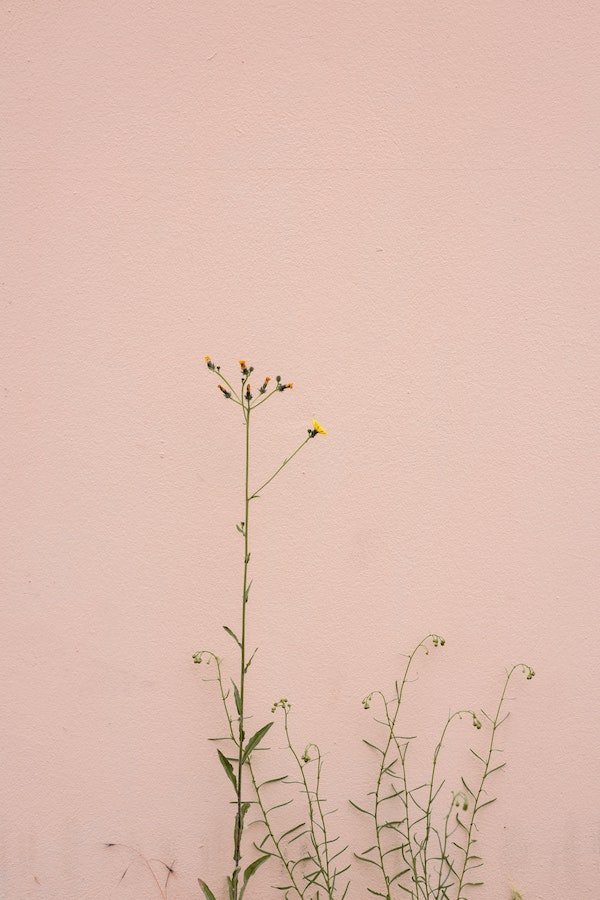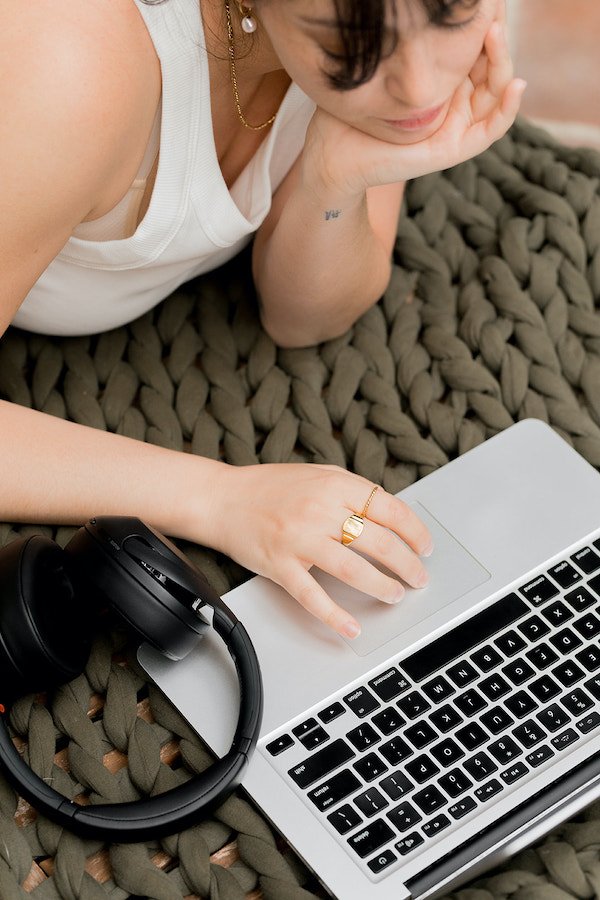
How To *Actually* Increase Our Attention Spans
What Was I Saying?
For months, I’ve been walking into rooms around my apartment, then forgetting why I entered them. I’ll ready my fingers to respond to a text or email, then forget who from. I’ve habitually reached for my cell phone whenever feeling bored—even if only for a second—while cooking, watching television, or doing my skincare routine. Needless to say, my attention span is waning. And I know other people are feeling it too.
For the last 18 months (maybe more), our attention spans have been operating at less-than-full capacity. An ongoing global pandemic; the widespread loss of our jobs and loved ones; multiple natural disasters spawned by an ongoing climate crisis; the highly publicized injustices faced by women, people of color, and other marginalized communities around the world—they are all bound to make us feel overwhelmed and helpless, stressed and anxious.
“If you’ve been feeling like your focus is repeatedly fleeting, you’re not alone.”
According to Todd Braver, a professor of psychological and brain sciences, stress and anxiety can affect our concentration, memory, and cognition. And communication theorist Nick Morgan Ph.D. asserts that, even if our attention spans haven’t changed, our ability to engage with new ideas has, specifically, because of stress and information overload.
If you’ve been feeling like your focus is repeatedly fleeting, you’re not alone. We’re forgetting our passwords; where we put our keys; what day it is; that word that was on the tip of our tongue. Even while writing this very paragraph, I got distracted by the darkening tips of my monstera’s leaves and began to mentally diagnose the possible causes. So let’s get to it! Please!
Here are a few ways to recover our concentration.
Stop Multitasking (It’s Not Working).
I often think that I’m optimizing my waking hours by multitasking. If I listen to NPR’s “Up First” while I brush my teeth in the morning, I might be able to meditate too, before having to log onto my first Zoom meeting. If I call my parents while taking my dog on his nightly walk, I might be able to squeeze in an episode of “Ted Lasso” before bed. If I cook dinner while wearing a face mask…you get the idea.
Sure, in doing this, I’m successfully making my way through my to-do list. But there are other losses. If we’re never giving our full attention to a single interest, we’re not becoming more efficient; we’re becoming less focused.
Forbes claims that multitasking is a myth, and that when we, more accurately, “task-switch,” we don’t just lose time and productivity, but we also become more stressed out and forgetful. Additionally, media multitasking (in which we engage with multiple digital screens) affects young adults specifically, resulting in their impaired attention.
“If we’re never giving our full attention to a single interest, we’re not becoming more efficient; we’re becoming less focused.”
To begin recovering our recall, productivity mentor Alejandra Marqués suggests we start actively and intentionally allocating time for our priorities. “Set one hour a week to look at your calendar and start blocking time for the things that matter the most to you,” she says.
Once designed, Marqués offers the popular Pomodoro Technique. Developed in the 1980s by then-university student Francesco Cirillo, the time management tool was intended to divide work into intervals: 25 minutes of distraction-free focus followed by five-minute breaks. (After four sessions, you’re rewarded a longer, more restorative 15-30 minute break.)
Rather than using this practice to incrementally chip away at one large task, however, we can use it to compartmentalize our interests and honor each of them with the concentration they deserve. We can pace ourselves and earn rest. Says Marqués, “Once you start having intentional breaks, you’ll gain back a lot of focus.”
Move!
At some point in my adulthood, I began to conflate movement with exercise, relegating the act to yet another entry on my to-do list rather than a fundamental means to good health. And, as I’ve already shared, characterizing anything as a “task” means it can easily become another bowling pin in my juggling hands. On more than one occasion, I’ve muted my Nike Training Club app so that I could follow my instructor visually while listening separately to audio of my choice: a brand new album, a YouTube clip, anything.
“Acknowledging that movement can (and should) exist outside the confines of an exercise routine can assist in our ability to focus.”
Acknowledging that movement can (and should) exist outside the confines of an exercise routine can assist in our ability to focus. According to Marqués, not prioritizing our wellbeing and health is one of the main reasons we’re struggling to concentrate. “I’m not talking about going to the gym for two hours, day in and day out,” she says. “I’m talking about allowing your body and blood cells to oxygenate.”
When we were children, for example, we ran around during recess, and our brains received neurochemicals, neurotransmitters, and endorphins that helped our memory, in addition to our mood. A study by the Translational Sports Medicine journal also found that two minutes to one hour of moderate- to high-intensity movement had a favorable effect on the memory functions of young adults.
Yes, we can sign-up for a HIIT class, but we can just as easily (and with less equipment) stretch or go for a walk. So as not to approach movement with the same reluctant energy often reserved for exercise, Marqués suggests we start small. “Pick one thing you would like to try during the next seven days”—remember to block out the time!—“and commit to it for just 10 minutes a day.”
Be Mindful (I Know, I Know)
You’ve heard it once; you’ve heard it a hundred times. Mindfulness is the art of living in the present. According to Vox, it’s any act that encourages us to focus on the sensations and thoughts we are experiencing in that very moment. This can, understandably, sound counterintuitive: How can we focus on anything if concentration is exactly what we’re struggling with?
“If and when we recognize that we are not present, the realization itself is a form of being present.”
Meditation (you’ve likely heard of it!) is always a start.
Citing a review of 23 studies, Vox found that people who had been meditating for a few months performed better on tasks that tested “their ability to shut out distractions” while more experienced meditators showed improvement in their “ability to maintain focus for especially long periods of time.”
Some of us may be drawn to the common practice of sitting cross-legged, eyes closed, focusing on the inhales and exhales escaping our nostrils and parted lips. But that’s not the only method. Here is a step-by-step guide to walking meditation. (If you were paying attention, you caught that pun!) And here are 99 more ways to practice mindfulness daily.
Mindfulness can be active: fixating on how water feels between our fingers when we wash our hands, how our feet seesaw from heel to toe on the ground as we walk. It can also be more passive: checking in with our needs before posting a photo on Instagram, glancing away from our computers and out the nearest window to identify the farthest thing we can see.
Meditation is a gracious space to lose our concentration in—because if and when we recognize that we are not present, the realization itself is a form of being present. We’re doing it. And practice makes progress.
“Once we have the desire to be more present, we’ll begin to prioritize seeking it.”
In the pursuit to regain control of our consciousness, let’s remember to be gentler with ourselves. Much of it begins with willpower, but we’re up against forces both out of our control and designed to be addictive, our good intentions at odds with our unconscious habits. Still, once we have the desire to be more present, we’ll begin to prioritize seeking it.
Have you found methods to increase your attention span? Let us know in the comments!
RELATED READING
Danielle Cheesman was born and raised in New Jersey, where she lived until moving to Philadelphia to study journalism at Temple University. She has spent her years writing and developing editorial visions for music, art, and lifestyle brands. Now residing in Los Angeles, you can usually find her taking pictures, making playlists, or cuddling her pup. Say hi on Instagram!




